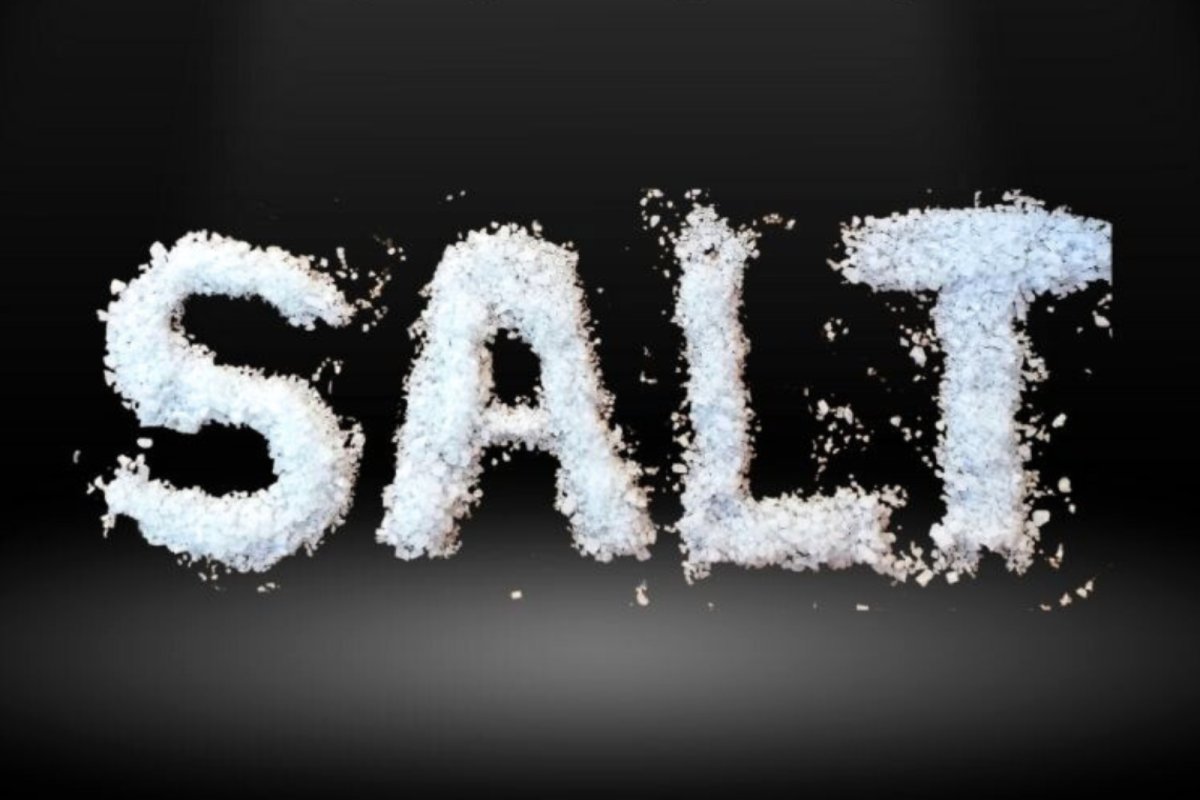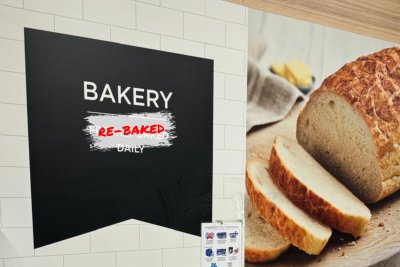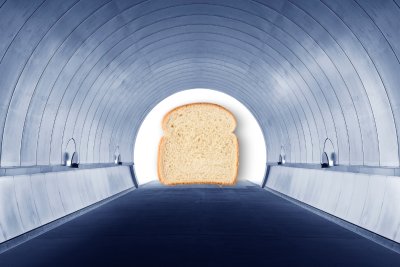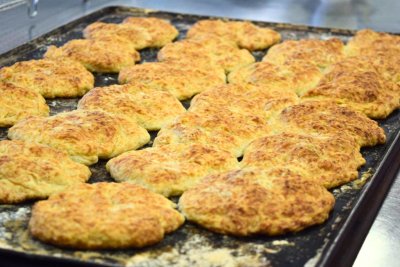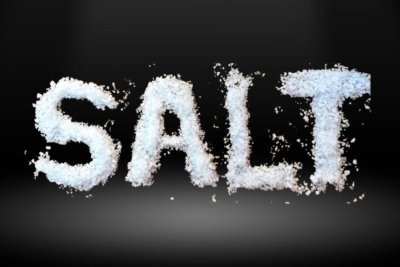 NaCl. Copyright: Action on Salt
NaCl. Copyright: Action on Salt
This year’s Salt Awareness Week runs from 13-19 May. The Real Bread Campaign is a long-term supporter of Action on Salt’s work, echoing the encouragement for all bakers to check that salt levels in their bread (or industrial dough products) do not exceed the UK government’s target maximum of 0.85% by weight in the finished product.
Depending on the recipe and how the bread is baked, this (roughly) works out to no more than 1-1.5g of salt for every 100g of flour – a baker’s percentage of 1-1.5%. For the home baker, 5g (no more than a level teaspoon) per 500g of flour is a handy guide.
FAQs
Addressing some of the points that tend to get raised every year…
- Yes, sodium chloride is essential for a range of functions in the body, but only in minute amounts. Too much is linked to increased risk of conditions including stroke, heart disease and stomach cancer.
- Yes, most of the salt in people’s diet comes from HFSS (high fat, salt and sugar) foods and ultra-processed foods, but that shouldn’t stop bakers (and industrial dough fabricators) putting their house in order as well.
- Yes, flavour can be introduced and developed/enhanced in other ways. These include using less refined flours, flours milled from non-commodity wheats and other grains, longer fermentation, and/or sourdough fermentation.
- No, salt is not essential in bread making. Though it has a range of technical functions, bread can be made without it – as pane toscano (Tuscan bread) demonstrates.
- No, we’re not telling anyone to make bread without salt – unless they want to.
What else is on the menu?
The awareness week is run by Action on Salt (the expert research group based at Queen Mary University of London) to highlight the health risks of a diet high in salt, and foods that exceed recommended maximum levels, as well as encouraging everyone to keep their intake in check.
This year, they’re throwing the spotlight on children’s meals sold by restaurants, fast food chains and other eateries. Action on Salt’s findings included:
- 37% of children's main meals exceeded the government's target maximum of 1.71g salt.
- Some individual dishes contained more salt than a child’s recommended maximum for a whole day.
- Nearly 50% of children’s meals studied contained at least half of a child’s daily limit for salt.
- Only 6 of 37 businesses investigated were fully compliant with the government’s voluntary salt target for children’s meals.
The recommended daily maximum salt intake for a six-year old is 3g. Two of the worst offenders, which exceeded this in just one child’s meal, were:
- 4.4g salt in Bella Italia’s larger vegan margherita pizza.
- 4.2g salt in Gourmet Burger Kitchen’s junior cheeseburger with skinny fries.
See also
Real Bread Campaign: The Real Bread Campaign finds and shares ways to make bread better for us, better for our communities and better for the planet. Whether your interest is local food, community-focussed small enterprises, honest labelling, therapeutic baking, or simply tasty toast, everyone is invited to become a Campaign supporter.
Sustain
The Green House
244-254 Cambridge Heath Road
London E2 9DA
020 3559 6777
sustain@sustainweb.org
Sustain advocates food and agriculture policies and practices that enhance the health and welfare of people and animals, improve the working and living environment, promote equity and enrich society and culture.
© Sustain 2024
Registered charity (no. 1018643)
Data privacy & cookies
Icons by Icons8
